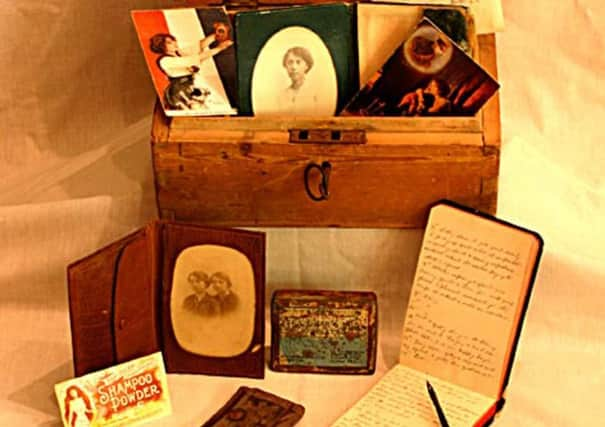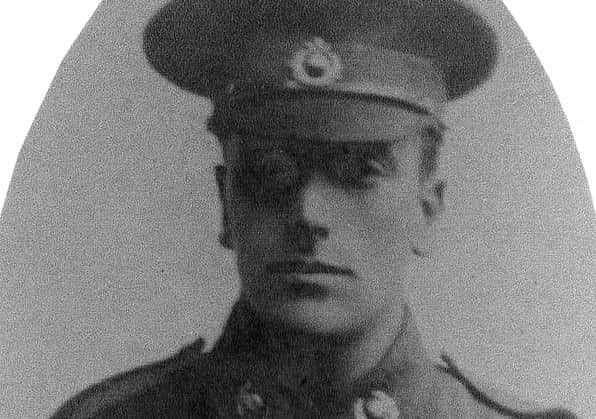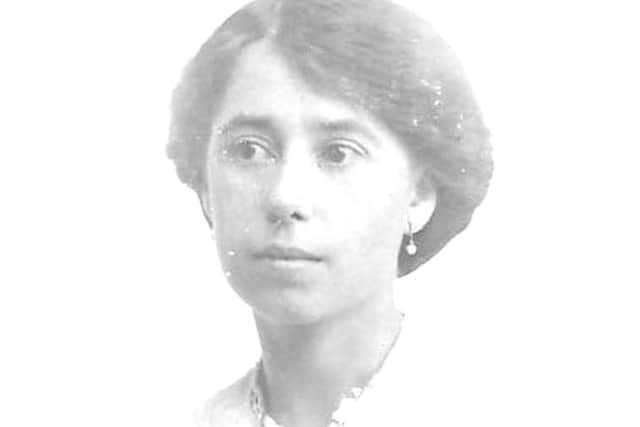Soldier’s box of secrets tells a World War One love story
This article contains affiliate links. We may earn a small commission on items purchased through this article, but that does not affect our editorial judgement.


W hen George Botting went to war, he must have known there was a chance he would not return.
What he could never have guessed, though, was one of his possessions would find its home in a museum and he and his young wife would be the central players in a local love story.
Advertisement
Hide AdAdvertisement
Hide AdGeorge married Dora May Wells on February 9 1916, weeks after signing up for military service. A member of the Royal Marines Light Infantry, he was soon sent to France.


Part of his kit was a wooden ditty box which contained items such as soap and a razor, pens and paper, a pipe and tobacco – and his diary.
The box is now kept at Cuckfield Museum and Phillipa Malins, a member of the curatorial team, said the latter item was something of a no-no, as soldiers were not officially allowed to keep diaries.
Alan Miller wrote a booklet called The Ditty Box (from a small town at war), which can be viewed at the museum. In it, he published extracts from George’s diary, which gave a hint of the fear and downright tedium of war.
Advertisement
Hide AdAdvertisement
Hide AdJune 20: Birthday card from May, I wonder why no letter – beginning to feel worried about her.


June 24: Fell in at 5.30am and after a walk of four miles over the open and through trenches reached our job close to Gavrelle, clearing a trench for stretchers only. Very risky job in daylight.
July 3: Feeling rather shaky, an abscess on shoulder troubling me a lot – went to have it dressed. Doctor sent me away to the Field Ambulance at Moelincourt.
One of May’s letters, dated August 14 gave a hint of the censorship of letters to and from the troops. She had received a letter from George which had been torn open and then resealed in a military green envelope.
Advertisement
Hide AdAdvertisement
Hide AdShe wrote: “lt was a great relief to get your letter written 6th this morning, eight days coming.
“The envelope inside was torn did you do that, if not it had been opened. The outside one looked Iile it too, but nothing was crsssed out.
“I am so glad you are camfortable, Boy, make the most of it while you can. I hope to goodness you will be able to manage it, and will stay there for two months, it’s something to know you are safe.”
The personal touches in her letters, such as her referring to her husband as ‘Boy’ make it easy to picture the life this young couple enjoyed before war tore them from each other.
Advertisement
Hide AdAdvertisement
Hide AdAnother letter included the line: “The guns have been awful this morning. The windows are chattering away with the guns.”
Apparently, the guns in France were so loud they could be heard in Mid Sussex.
On August 17, George’s battalion was sent to Frevillers for training. George had been given the post of instructor.
The last entry in his diary read: “Aug 20th - Day of rest. Go to Auchel in the evening for a walk, quite a nice place, actually boasting a bazaar after our style. Buy a pocket wallet for a photo of the best little Girl in the World.”
Advertisement
Hide AdAdvertisement
Hide AdThree days later, while carrying out his duties as an instructor, George was killed after a grenade exploded prematurely as one of his recruits went to throw it.
May received the news in a letter from Lieutenant Colonel RC Hawkins who wrote: “He was struck through the heart and died instantly. Fortunately he did not suffer any pain, and I honestly believe he knew nothing of the accident.
“Your husband was a magnificent instructor, and was much admired and loved by his men.”
May was sent the ditty box from France in 1917. The family presented it to the museum in 2003.
Like many widows of the day, May never re-married.
Advertisement
Hide AdAdvertisement
Hide AdGeorge was buried at the Lapugndy Military Cemetery, France.
Don’t miss out on all the latest breaking news where you live.
Here are four ways you can be sure you’ll be amongst the first to know what’s going on.
1) Make our website your homepage at www.midsussextimes.co.uk
Advertisement
Hide AdAdvertisement
Hide Ad2) Like our Facebook page at www.facebook.com/midsussextimes
3) Follow us on Twitter @midsussex_times
4) Register with us by clicking on ‘sign in’ (top right corner). You can then receive our daily newsletter AND add your point of view to stories that you read here.
And do share with your family and friends - so they don’t miss out!
The Mid Sussex Times - always the first with your local news.
Be part of it.